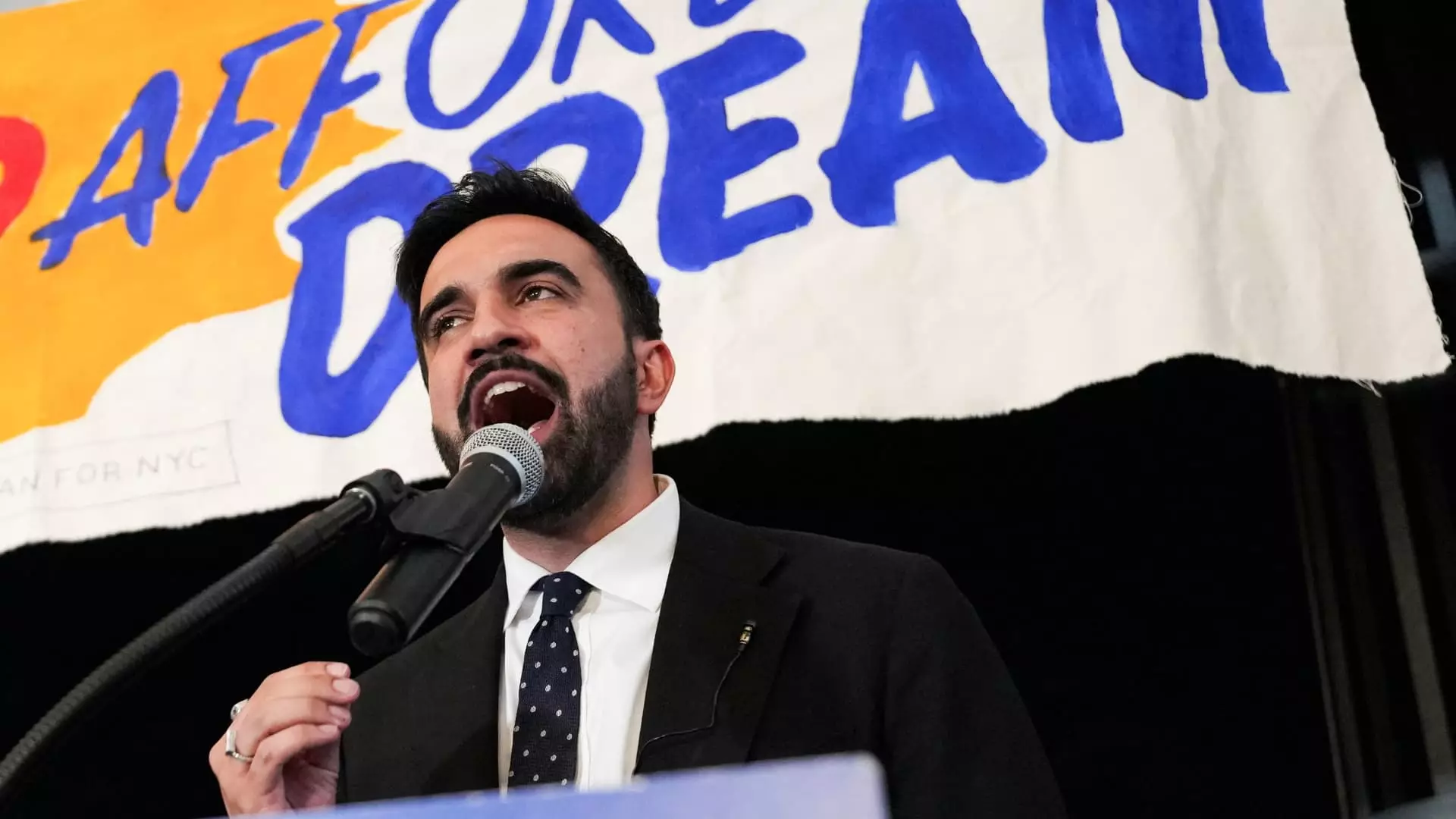President Donald Trump’s recent denunciation of Zohran Mamdani, a rising star in New York City’s political scene, as “a communist” is not only factually inaccurate but emblematic of a broader, deeply troubling trend in American political rhetoric. Labeling Mamdani—and by extension, progressive candidates—as communists oversimplifies nuanced political ideologies and weaponizes fear against efforts to address systemic inequality. Mamdani, a democratic socialist and an advocate for policies like corporate tax hikes and rent freezes, embodies a progressive vision seeking practical reform rather than any extremist or authoritarian ideology. Yet Trump’s inflammatory language seeks to stoke panic, casting New York as a “communistic city,” a phrase designed to alienate moderate voters and embolden conservative backlash.
This reckless rhetoric does more harm than good. It eclipses serious policy discussions about wealth disparity, affordable housing, and public transit by substituting substantive debate with ideological demonization. Rather than engaging with Mamdani’s proposals, Trump chooses to obscure the conversation with buzzwords tinged with Cold War paranoia—a tactic that ultimately undermines democratic discourse and deepens political polarization.
Investor Anxiety or an Obstacle to Social Progress?
Unsurprisingly, Mamdani’s unexpected primary victory sent shockwaves through New York’s powerful business and financial sectors. Hedge fund founders like Phillip Laffront openly express fears that investor flight could follow Mamdani’s potential mayoral win, reflecting a common tension between capital interests and progressive governance. This concern reveals a privileged assumption: that prosperity and political influence hinge on preserving an economic status quo skewed toward the wealthy few.
Yet, this anxiety might be misplaced. Historical evidence suggests that cities pursuing ambitious social reforms need not face economic collapse. On the contrary, progressive policies that address housing affordability, income inequality, and commuting efficiency can foster sustainable urban growth and a more resilient economy. The real question is whether city leadership will have the courage to enact bold change in the face of entrenched economic interests—a battle Mamdani seems prepared to fight.
The Flawed Political Landscape of New York City
New York’s mayoral race today is not simply a binary choice between political ideologies but a reflection of a fractured and complicated political environment. Current Mayor Eric Adams’s bid for re-election as an independent—against the backdrop of a clouded legal history and waning popularity—exemplifies the erosion of traditional party structures and voter trust. The bizarre interplay between federal prosecution, DOJ interference, and Adams’s personal political gambits has left many voters disillusioned.
Meanwhile, Andrew Cuomo’s defeat—even after receiving establishment endorsements—highlights a growing appetite among New Yorkers for new leadership unmoored from old political machines. That Mamdani, a democratic socialist, emerged victorious in this landscape speaks less to ideology and more to a yearning for accountability, equity, and tangible improvements in quality of life.
The Perils of Simplifying Complex Identities
Trump’s rhetoric not only mischaracterizes Mamdani but also dangerously conflates socialism—an increasingly mainstream and legitimate political stance in many democratic societies—with communism, a totalitarian ideology fraught with historical atrocities. Conflating these distinct ideologies undermines public understanding and stokes irrational fears.
This confusion is more than academic—it shapes voter perceptions and electoral outcomes. By branding progressive candidates as radical threats, conservative actors seek to delegitimize growing calls for systemic reform and deepen cultural divides. This modus operandi, while politically expedient, comes at the cost of honest political dialogue and democratic maturity.
Reclaiming the Middle Ground in American Politics
In these turbulent times, the political center must resist the lure of hyperbolic rhetoric and instead focus on fostering informed, respectful debate. Mamdani’s platform, rooted in pragmatic measures designed to improve the daily lives of New Yorkers, deserves nuanced engagement—without the distortion of ideological slurs. The stakes are high: as America grapples with economic inequality and urban challenges, clarity and sobriety in political discourse are vital.
True leadership will come from embracing complex realities, acknowledging competing interests, and pursuing reforms grounded in fairness and evidence rather than fearmongering. The road ahead for New York—and the country at large—depends on shedding reductive labels and building coalitions that can govern boldly but responsibly.


Leave a Reply